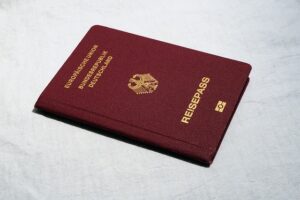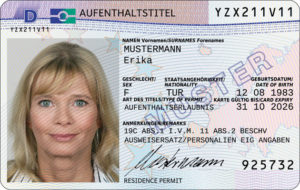Please note: Although the information on this website has been prepared with the utmost care, we cannot accept any responsibility for inaccuracies contained herein. Always refer to the official websites for up-to-date information.
The German Cabinet approved the new legislation to allow Dual Citizenship. The new law comes into effect on 26 June 2024. This page will then be updated as well
Here is a link to the changes (in German).
A summary of the proposed changes:
- Multiple citizenship will be allowed, there is no need to renounce your South African citizenship anymore. This also means you will have to apply for retention of your South African citizenship.
- If you meet the criteria, you can apply after 5 years, and in some cases already after 3 years of living in Germany. The current timeframe is 8 years. Those who can demonstrate a high level of integration and advanced German language skills will be able to obtain citizenship after just three years under the draft proposal.
- If a foreign couple has a child in Germany and one parent has been a legal resident in the country for five years, the child will automatically be granted citizenship.
- The German language requirement is to be eased. Details are still unclear on what exactly this means.
- Those who are dependent on state support will not be eligible to apply for citizenship.
- Anyone who wants to be naturalised in Germany, must commit to the values of a free society. Anti-Semitic, racist or other inhumanely motivated actions are incompatible with the human dignity guarantee of the Basic Law for the Federal Republic of Germany and violate the free democratic basic order within the meaning of this law.” Such actions preclude naturalization.
- Naturalisation is excluded in the case of Polygamy, or if the foreigner shows through his behaviour that he disregards the equal rights of men and women stipulated in the Basic Law.
Retention of South African citizenship
The basic rule is that an adult South African citizen who intends to apply for foreign citizenship, but who does not want to lose his/ her South African citizenship, must first apply for the retention of South African citizenship, which must be done and approved before acquisition of the other citizenship.
This is applicable when the country where you apply for citizenship, allows dual citizenship.
Even though South Africa allows dual citizenship, Germany currently does not allow Dual Citizenship for South Africans, which means you will have to renounce your South African citizenship.
This is governed by Section 12 of the Nationality Act. This act also explains the exceptions, but they generally do not apply to South Africans.
More information is available on the South African Government Gazette on citizenship
Recent News:
The Supreme Court of Appeal (SCA) has ruled that the automatic loss of South African citizenship after gaining citizenship of another country is unconstitutional. See more information here
You can obtain German citizenship through:
- Decent/Birth – See Section 4 of the Nationality act
- By Declaration – See section 5 of the Nationality act
- Naturalisation (incl spouses) – See Sections 8 to 16, 40b and 40c of the Nationality act
- Adoption – See section 6 of the Nationality act
- by issuance of the certificate – See section 15(1) or (2) of the Federal Expellees Act
Naturalisation
Current rules:
“To be eligible for naturalisation, a person has to have lived legally in Germany for at least eight years and possess the appropriate residence permit.
Foreigners who have successfully completed an integration course are eligible for naturalisation after seven years.
Persons wishing to become naturalized citizens must also declare their allegiance to our constitution and have a sufficient command of the German language.
Knowledge of German is an essential prerequisite for integration into our society.
Candidates for naturalisation must be familiar with the legal system, society and living conditions in the Federal Republic of Germany (naturalisation test) and be able to support themselves without recourse to social assistance unless this is due to circumstances beyond their control; nor can they have committed any serious criminal offences.
In addition, they must give up their previous citizenship. In certain cases or for certain groups of persons, however, multiple nationalities may be considered.”
Read more on the BMI website.
Before you can apply for naturalisation, you need to pass the Einbürgerungstest and be able to prove your language proficiency, currently B1 level.

Einbürgerungstest and Leben in Deutschland
Leben in Deutschland The Leben in Deutschland tests your knowledge of the legal and social order and the living conditions in Germany. If you apply for Permanent residence, you must use the test to demonstrate knowledge of Germany’s legal and social system and living conditions. You do not necessarily need to attend the course to write the tests.You need a minimum of Level A2 to B1 to understand the test questions. Einbügerungstest The Einbürgerungstest tests your knowledge of the
In preparation for the new Nationality law, we added a page about the naturalisation process

German Citizenship through naturalisation
Naturalisation refers to the legal process of attaining citizenship of a foreign country. The requirements for becoming a naturalised German citizen are governed by Section 10, para. 1 of the Nationality Act. On January 19, 2024, the German Bundestag passed the law to modernize nationality law – this came into force from 27 June 2024. We publish this page to help you understand the new changes and to prepare for your citizenship application. Acquiring German citizenship through naturalisation
Married to a German Citizen
A foreigner does not become a German citizen through marriage with a German.
Naturalisation requires that the spouses have resided in Germany for a certain number of years and that the foreign spouse is well-integrated in Germany and speaks the language fluently. Please contact the local citizenship authority at your German place of residence.
Provided certain other conditions are met you have the right to naturalisation after you have been legally resident in the Federal Republic of Germany for three years. However, you have to have been married for at least two years.
Foreign parents
Children born in Germany after Dec. 31, 1999 to foreign parents who were legal residents of Germany for at least eight years, acquire German citizenship too.
However, between the age of 18 and 23 they will have to decide whether to keep German citizenship or the citizenship of their parents.
Also important to note:
- As a rule, children born to a German and a non-German parent, or to parents with dual nationality, acquire the nationalities of both parents at birth, according to the principle of descent. See Section 26 of the Nationality Act
Two sections in the South African Citizenship Act is of importance
Section 10 – Deprivation of citizenship in case of children
Whenever the responsible parent of a minor has in terms of the provisions of section 6 or 8 ceased to be a South African citizen, the Minister may, with due regard to the provisions of the Children’s Act, order that such minor, if he or she was born outside the Republic and is under the age of 18 years, shall cease to be a South African citizen.
Section 13 – Resumption of South African citizenship
(2) A minor who has in terms of section 10 or a provision in any of the laws referred to in Schedule 2 ceased to be a South African citizen and who is resident in the Republic or has returned to the Republic for permanent residence therein, may at any time after attaining the age of 18 years make a declaration in the prescribed form stating that he or she wishes to resume South African citizenship, and if the Minister deems it fit, he or she may order that such a declaration be registered, and upon registration thereof, such person shall resume his or her former South African citizenship.
Infromation on the web
Please refer to the following websites for information on German Citizenship and Naturalisation.
Legal basis
- Gesetze im Internet (English) or as a PDF file – The new laws will only be published after 26 June 2024
- Staatsangehörigkeitsgesetz (StAG)




You must be logged in to post a comment.